Wannabe wanderers initially have just one question on their minds: How much does long-term travel cost? The classic response to this question may be informative, but is not completely helpful.
The web abounds with the personal budgets of folks who have taken off to explore the world. Through the magic of Google it is easy to find detailed financial histories for backpackers and RVers chronicling weeks, months and even years of their spending. These individual budgets are often posted as definitive answers to the headline question. What they miss, though, is the most important cost component of all: you!
One thing we’ve learned after more than two years on the road is that no matter where we go we never leave ourselves behind. We take with us our preferences for food and for comfort, our likes and our dislikes, our needs and our wants, our hobbies and our interests. These preferences and obligations are unique to us. Nobody else’s travel style is exactly like ours. Nobody else’s lives are quite like ours. So nobody else’s travel budget fits us just right either.
What makes matters worse is that the budgets you most often see online do not reflect the full range of traveling styles. Instead, they almost exclusively fit into the very narrow category of extreme budget travel. It’s this way for a reason. People are more willing to share their personal financial details when it highlights a perceived virtue, like frugalness. Another motivation for posting barebones budgets is to show how inexpensively some people can travel.
A recent post at the budget travel site Nomadic Matt illustrates the downside of this approach. In The Myth Travel is Expensive Matt wanted to see how far he could stretch $100 in the costly city of Stockholm. His answer: an impressive 5 days. More important, though, is the context Matt adds to what that level of spending meant for his travels.
“Living like a pauper was boring. Incredibly boring. Sure, I did some stuff, but not nearly as much as I would have liked. It was hard to go out with friends because even buying a soda could bust my budget. See that movie? Nope. Eat out? Definitely not. Filling the days was easy – I walked around a lot, took the free walking tours, hung out in parks, did a lot of wandering, or worked. I was never bored during the day. But the nights? The nights were agony.”
And while the intended point of Matt’s article is that you can travel really inexpensively if you want, the larger truth – one that budget travelers almost never mention – is that you may not actually want to. Some travelers may enjoy just sitting on park benches in Stockholm all day. And that is great for them. Others may feel that it’s a complete waste of time to travel somewhere and be so limited in what you can do.
Moreover, extreme budget travel often means enduring other hardships too, like sleeping on the couches of strangers or in dormitory accommodations; possibly walking or hitchhiking between locations. For RVers, forgoing the cost of utility hookups means constant water and electricity rationing. While the hardcore traveler may see these as worthwhile sacrifices for a life on the road, they aren’t for everyone.
So when asking “how much does it cost?” forget everyone else’s spending for a moment and start with the only budget that matters: your own. Your existing budget includes a wealth of the personal details you’ll never find online. By looking at your current spending habits you can easily see how much you like to dine out, how much you spend on hobbies, on entertainment, and on unavoidable fixed costs. Each line item in your budget is a window into your preferences and obligations. It is the single best source of information when trying to forecast how much fulltime travel will cost you.
Building your travel budget off of your existing spending habits requires that you actually track your existing spending. You do that, don’t you? If not, it is high time to get started.
The good news is that today’s technology makes tracking spending super easy. Gone are the tedious days of writing down each purchase. Now it’s just a matter of using a credit or debit card for every purchase and downloading all the transactions into personal finance software like Quicken. If you already use plastic most of the time, you probably have a year’s worth of spending details waiting for download.
Building a Fulltime RVing Budget
Now that you have a good handle on where your money goes, forecasting your cost of living in an RV is a fairly straight forward exercise. What you’ll find is that many categories of expenses won’t change dramatically and most of the rest are fairly easy to estimate. Building your personal fulltime travel budget is a simple matter of adjusting your existing spending for known changes.
Monthly spending on things like groceries, entertainment, alcohol, cell phone service, satellite T.V., dining out, health care, insurance and a host of other items may stay exactly the same. What you spent during the last twelve months is a pretty good guide to what you’ll spend in the coming twelve months – whether at home or in an RV.
Other spending categories will change in predictable ways. You’ll replace your rent or mortgage payments with campground fees. Your electricity budget will likely drop to zero but you’ll have new spending on propane. Home and yard maintenance costs will be a thing of the past but you’ll likely spend more, perhaps a lot more, on gasoline.
Forecasting these new expense categories isn’t hard but requires you to think about how you want to travel. How much you spend on campground fees depends on how you plan to camp. Primitive camping without water and electric hookups is often free. Free camping with hookups is available to people willing to work at the campground (called Workamping).
Private campgrounds with amenities like full hookups, swimming pools, cable T.V., and wifi vary in cost from a low of about $20 per night to more than $100. We’ve found a nightly rate of between $30 and $35 to be about average for private campgrounds, with an occasional high priced location offset by more frequent lower cost ones.
Discounts for weekly and monthly stays can cut those prices considerably. It’s not unusual to see monthly discounts of as much as 70% off of the nightly rate. So there are real savings to be had by hanging out in one spot. While our idea of travel doesn’t include spending months at a time in the same location, plenty of other folks do. But that is the entire point – your budget will reflect your travel style, not ours.
By just looking at the range of campground costs travelers encounter it is easy to see the huge diversity of potential budgets. Workampers and boondockers may spend nothing on this category. More stationary travelers taking full advantage of discounts may spend $300 to $400 per month at private campgrounds whereas constant travelers who enjoy the conveniences of shore utilities may spend $1,000 or more each month. That’s potentially a $12,000 annual swing in just one category of spending.
The same is true for gasoline. How much you spend here not only depends on how far you drive but also on the kind of “rig” you have. Only you know the fuel efficiency of your setup or can estimate how many miles you want to drive each month. With just a little forethought it isn’t too hard to make a reasonably accurate estimate of your specific monthly gasoline expenses (miles driven / MPG * average gasoline price = fuel cost).
You’ll be able to make similar estimates about most of your spending categories, too. Some items, like propane expenses, may be a little harder to estimate because you may not have a good handle on how much propane you’ll burn. For items like this, it’s okay to plug in a guesstimate based on other peoples’ budgets. These numbers are small enough not to have a huge impact and whatever you use is likely to be a better estimate than leaving the category blank.
Building a world travel budget
Estimating expenses for world travel is harder than for domestic RVing because more of your existing budget will change and because living costs are so variable from place to place. How much you spend on a worldwide trip not only depends on your spending preferences but where you travel.
Nevertheless, we still suggest starting with an examination of your existing spending habits, if for no other reason than to get a handle on your fixed expenses. Are you planning on keeping a residence in your home country? Maintaining health insurance? What about income taxes? All of these expenses, and possibly more, may continue regardless of where you are in the world. Travel expenses will come on top of these fixed costs.
Looking at your current spending also gives you an objective sense of how frugal you really live. If you’re currently spending thousands of dollars per month on discretionary entertainment items you may want to think twice before committing to a frugal travel budget.
Once you have a feeling for your fixed costs and discretionary spending habits, it’s time to consult other references to roughly ballpark your budget.
Cost of living calculators: A good way to gauge the expense of a given destination is to compare what locals pay for things against what you’re used to spending. Cost of living calculators like Numbeo.com give local price information for everything from a taxi ride to a meal out. With this information it is possible to adjust each line of your current budget to reflect what you would have spent if you lived in that foreign destination. With these price adjustments, you can build a detailed world travel budget in the same way you’d build a domestic RVing budget.
Guide Books: Many guide books give a per-day estimate for the countries they cover. We found Lonely Planet’s cost information to be a pretty good indicator for what we spent using local transportation and budget accommodations. Frommer’s and Fodor’s offer similar information for more mid-range, vacation type excursions.
RTW cost calculators: Sites like RTW Price Tag allow you to cost out a global multi-destination trip. Like most online resources the site has a budget travel bias, so adjust the estimates accordingly.
Other travelers: Notwithstanding all the caveats above about how other travelers’ budgets may not fit your needs, when taken with a grain of salt, they can be a good resource for determining what is possible. Good round-ups of several travel budgets are found at Legal Nomads Long Term-Travel Resource Page and BootsNAll’s Travel Budgets Revealed.
Long-term travel costs as much as you have
For all the words spilled here and elsewhere about the cost of travel the real answer to the question “How much does it cost?” is “As much as you have.” While that may sound flip and unhelpful, it is probably the most accurate answer you’ll ever hear. Each of us tends to spend the resources we have and adjust our lifestyles to match. Travel is no different. If we can afford to do something other than spend our days sitting on a park bench or walking between towns, most of us will choose to do that. If we can’t, we won’t. Our travel budgets will reflect our monetary constraints as much as anything else.
We’d caution folks against assuming radical changes in spending and lifestyle. It’s easy when caught up in the fever of planning a life on the road to pretend you’ll be comfortable living a more frugal lifestyle than you currently do. Saying you’ll cut spending in the future is an easy way to make the numbers work. But if it is really that easy, why haven’t you cut that spending already?
Our advice is to live your travel budget while you’re still in the planning stages. If you plan to save money by living without cable T.V. or by cooking rudimentary meals in hostel kitchens, make those changes now. Not only will this accelerate your savings, it will also give you insight into the lifestyle you’re contemplating. Better to find out now if those changes are acceptable than after you’ve quit your day job.




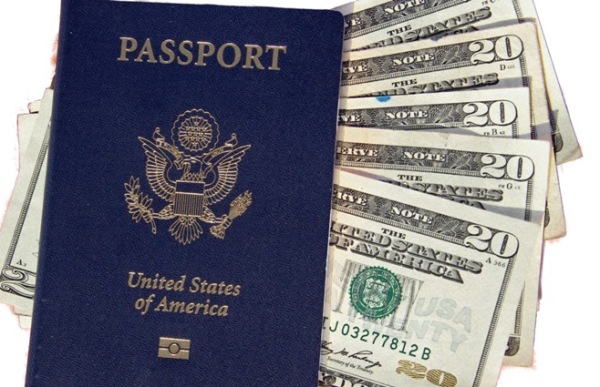
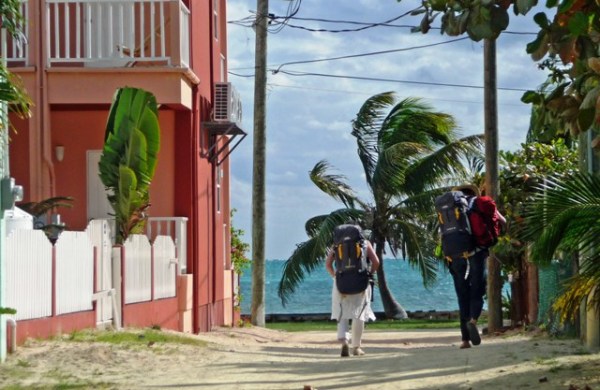
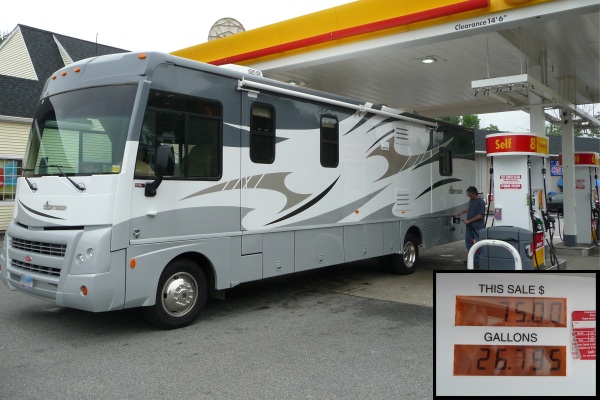






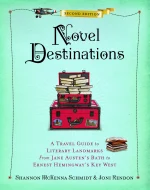




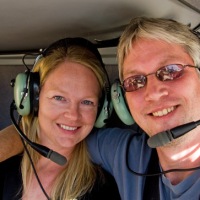





very useful! thanks for sharing 🙂
LikeLike
Great post. Thanks so much!
LikeLike
I think this was probably the best article I’ve read addressing this issue. We researched for 5 years before going on the road and really thought we could do it less expensively than we are. Luckily, we prepared for that in case that low-cost thing was a myth…which it was! We’ve been full timing for 2 years now and have no intention of stopping until we have to. It is an awesome lifestyle and we’re loving every minute of it!
LikeLike
It really is an incredible lifestyle. And you’re absolutely right about having some cushion in your budget in case “that low-cost thing is a myth.”
LikeLike
My boyfriend and I are thinking of a long term road-trip next year, so this is incredibly useful. I particularly like the final point, that it costs as much as you have. I took ‘spare’ money on my last trip, to Morocco, but still spent all of it. I could have easily done the trip without spending that money, but in the end, it wouldn’t have been quite the trip I wanted to have. It’s definitely impossible to shake my tastes and preferences when I’m travelling!
Emily – http://www.emilyluxton.co.uk
LikeLike
We loved Morocco. And it’s true, we’re always balancing the cost of things with their value. Spending more isn’t always better. Lots of times it isn’t. But some times more really is more. 🙂
LikeLike
“Another motivation for posting barebones budgets is to show how inexpensively some people can travel.”
That’s why we do it. But the comments we receive suggest that while people are impressed that we can travel and live (we have NEVER been bored!) for so little money, very few are willing to do it the way we do. Like you said, everybody is different, and everybody’s lifestyle and budget will be different.
LikeLike
I think stories like yours are useful in showing people what might be possible and encouraging them to reach for their dreams. But it’s also important for folks to recognize that budgets like yours aren’t feasible for everyone. The sad fact is that plenty of U.S. couples would spend your entire budget on health insurance alone. So the approach I would take is to set the hardcore budget traveler as my “stretch objective” and then layer on to their spending the realistic particulars of my situation.
LikeLike
Thanks for sharing, it is useful, especially for me.
LikeLike
Excellent post. If you are flexible and open-minded anything’s possible. But if you ask ten different people how they did it you will get 10 different answers.
LikeLike
Very true. It’s one thing to live mostly frugally, doing nothing all the time does become extremely tedious. I find I need a balance, eating locally and saving money everywhere, but then splurging on something expensive like learning to dive. What is the point if your not having fun?
LikeLike
What a way to go . . . Great writing …. inspiring! It’s on my dream list!!!
LikeLike
I’m so glad to have found a blog to give useful and real information on traveling! Thanks ❤
LikeLike
Welcome aboard!
LikeLike
Good advice Brian. It is so true that one spends what one has available to spend. I used to be the best of the budget travelers but as I get older I find it is not allways the way I want to travel anymore. Still do it on a budget but with some comforts thrown in.
LikeLike
It’s true that our needs and wants change over time. People who didn’t mind (or even liked) sleeping in dorm rooms with two dozen strangers in their twenties are less enamored with that idea in their 40’s.
LikeLike
Great article… You reminded me that I forgot to add Propane and Gasoline to my budget… uhg! Thanks for your awesome blog. My partner and I will be ‘hitting the road’ in couple of months and are soooo excited. I love reading your blog… you rock!
LikeLike
Blushing. LOL.
LikeLike
Well said. My brother and his wife recently bought an RV. They struggled in making a decision until I asked them, “how do YOU like to live?” and then it became clear on the floor plan that best fit THEIR needs. The same with a budget….very personal. Great post!
LikeLike
Absolutely. “To thine own self be true.”
LikeLike
This is such a useful article. After discovering your blog and reading along, I’ve been very seriously considering taking a year off work with my husband and travelling (we both have high stress jobs and are constantly physically ill from working so much) but thinking about budgeting makes my head spin. Not only is this article helpful, it’s a reality check too, especially reading that quote from Nomadic Matt. I don’t want to be limited to sitting on a park bench all day and then calling it a night when the sun goes down. Thanks for posting!
LikeLike
When considering a year-long trip my biggest concern would be assuring re-entry into the workforce afterwards with the budgetary issues a distant secondary consideration. With a limited duration trip, you can pretty much set aside a certain amount of money and then travel until that money runs out. No budgeting really required (other than deciding how much you want to start with). Working with a fixed pile of money like that also makes choices and trade-offs crystal clear: e.g. “would I rather have that nice dinner or another day on the road?”
LikeLike
Definitely – these are all concerns on my mind. Thanks once again for all the helpful comments, Brian!
LikeLike
Great article. Nice to see someone address the fact that many of us don’t want to be backpackers or live like paupers. Great information and lots of insight. Thanks.
LikeLike
You’re very welcome. Thanks for stopping by!
LikeLike
Love this article and the fact that you addressed not the “Can you” but the “Why would you” aspect of backpacker travel. I travel on the cheap, but I never stay in a dorm or a even a hostel. Renting a room in a budget hotel for a month is a lot cheaper than people think (depending on where in the world you are of course.) 🙂
LikeLike
So true, so true! We have adjusted to life after undergrad school only to readjust to life in grad school, and we’ve decided to keep the momentum of less-is-more so we can a) afford to travel and b) spend where we want to spend when we do travel.
Having been to so many places, it’s easy to learn your travel style by examining your vacation habits too. We’ve learned that we’ll save money by going where ever is on seat sale, to be able to spend on adventure when we get there.
All such great advice here, thanks for sharing!
LikeLike
Thank you! The first post on budgets that doesn’t make me feel like some bourgeois cow for wanting to spend a little more! When discussing our budget in hostels we often get a little superior smirk because people think that they are better than us for spending so much less.
LikeLike
I originally had a couple of paragraphs in the article about how budget travelers have turned frugality in to a blood sport. You see it all the time. Check out the comments section of The Frugal Traveler at The New York Times to see the self-righteous hoards gather to mock Seth for not being a “true” budget traveler. It seems everyone needs a reason to feel superior to someone else.
But the purpose of travel isn’t to prove how little you can spend. I’m pretty sure I could spend a week in Paris and spend zero dollars. It would mean eating out of garbage cans and possibly sleeping on street corners, but hey, I’d get frugality bragging rights. My trip would totally suck but I’d get to look down on all the spendthrifts who “wasted” money actually doing things. Go me.
LikeLike
You two are so smart, brave, and cool! Thanks for sharing your journey and tips!
LikeLike
Now that’s a trifecta to be proud of. Thanks!!
LikeLike
What a great informative read, I am yet to be fortunate and able to travel the world, however, there is one philosophy I will be keeping in mind when it comes keeping my budget in check, and that is, remembering to stay focused on streamlining the budget and enjoying myself by keeping in mind This Point, ” You Get What You Pay For “.
LikeLike
Excellent article! I keep a careful eye on costs, but when I’ve spent a significant amount on an airfare somewhere, I do want to see what the place is famous for. Even when I was a backpacker, I spent money on sightseeing and economised on accommodation and food. In Switzerland, one third of my budget for a week went on the trip up the Jungfraujoch, but it was worth it! Why make such an effort to go somewhere just to walk around a town?
LikeLike
This is such a great, informative post! While I’m not planning on any long-term journeys in the near future, I think your wisdom holds true for any traveling experience. Being honest with ourselves about who we are, what we want from a destination, and how much we can reasonably spend for it goes a very long way toward guaranteeing a satisfying experience. I know if I took a trip to Stockholm, dining on local cuisine, visiting museums, and sightseeing would be very important to me. I guess $100 wouldn’t even last me a day – and now I’m absolutely OK with that. Thanks for easing my conscience about my travel preferences. 🙂
LikeLike
Loved this post. We’ve been travelling: slow travelling since 2010. 10 months like vagabonds on the east coast of the US and then 10 months in Marseille and now in a new town in France.. It costs us less to live here in France than it does to live in the US or Canada. People are always surprised…
LikeLike
Really nice travel-themed blog you have here. Some really great photography, as well. One thing you might want to add under affordable travel options (though not quite as affordable as some of the options presented here) is cruise ship travel. Considering that food, lodging, entertainment, and travel are all rolled into the price, it’s not bad at all if you shop around for deals.
LikeLike
As much as you have got, ain’t that the truth.
LikeLike
Your blog posts are always a great read… and this one really makes me want to realize a long-held dream. Thanks for the advice and tips – when I buy a new van to replace our elderly one (which always breaks down) I’ll be retracing your footsteps. Why not come and do the same here in the UK?!
LikeLike
Well thanks, Tammy. We’re so glad you enjoy our posts. As for getting a camper-van in the UK, it’s something we’d very much like to do. Today’s post https://everywhereonce.com/2012/11/26/subverting-schengen/ explains a bit about why we’ve always thought that might be an unrealistic option. But now as I think through the logistics of skipping around various visa restrictions, it might not be such a crazy idea after all – although one that still begs for tons more research.
LikeLike
You make a really great point about how every traveler is different and their budget should reflect that. My fiance and I travel internationally for about $1500 per month, which includes our costs back home – like student loans and car payment.
Our travel style is more, “stay for a while,” so we stay in the same location for a month or two so we can take advantage of monthly apartment rentals prices. While we travel for fairly cheap ($50/day for 2 people), we never sacrifice comfort or safety. For instance, we’re now staying at an apartment in Southern Spain that is literally 50 steps from the beach and we have a maid that comes 3 times/week. These are things we could NEVER afford back home.
We’ve learned to save money by traveling long term and it’s the best decision we’ve ever made to take off and start traveling.
Keep up the great posts!
LikeLike
Hi Staci
That’s a great point. By traveling slow you really can save tons of money without sacrificing the experience.
LikeLike
I so agree with this post!! People always ask us what our year cost and I don’t think that question is really appropriate. It is liking asking someone what they make a year? Does it really matter? Different people will spend and do things differently …they will travel differently.What is important is how we did it. . .Where you want to go, where you choose to stay and the activities you choose to do while there will effect the cost. So giving someone the bottom line will only reinforce one’s ideas about their ability to go or not go The fact is when you are ready to travel you make it happen.
The truth is we lived within our means for a year on the road. We didn’t go into debt. We saved, we decided to do it and and we took a year off.
LikeLike
Good for you and thanks for sharing.
LikeLike
Reblogged this on 4 Worn Passports and commented:
This is the best summary and explanation of long term travel budgeting that I’ve seen. As with most things, there is no one-size-fits-all travel budget. Great post, Everywhere Once!
LikeLike
Interesting view on traveling or life for that matter. We have been traveling as a couple with our dog for over a year now on our daily budget of 9 euro per person and I must say there have been times our lives have been a bit harder (like in any other ‘normal’ live), but overall, our way of low-budget traveling makes our lives more interesting instead of less. A lot of the times we experience unforgettable moments, because of our limited budget. I must say that prior to our nomadic lives we have always been able to enjoy the little things and we both have a an innate capability to make the best out of every situation, regardless of the money that is available to us. Traveling on a small budget gets us to appreciate the more expensive things a lot more, because they simply don’t happen that often and I believe that is a good thing. Being a traveler generally opens a person up and might even change his/her view on the world and life, realizing he/she can live a happy life on a smaller budget. So while I agree you need to take a look at your current way of living before starting a RTW trip, happy low-budget traveling definitely is not a myth. It is funny that I stumble upon this article, because I recently wrote a post on this topic on our blog, but than again things happen for a reason: http://www.letsbenomads.com/travel-stories/inside-the-mind-of-a-traveler/.
Happy travels!
LikeLike
We certainly agree it’s possible to be a happy traveler on a tiny budget (although we always wonder whether the folks extolling the virtues of extreme budget travel wouldn’t choose to spend more if they could.) Nevertheless, I think you’d probably agree that plenty of other folks wouldn’t be happy traveling on these budgets. For those people, budgeting 9 euros per day because they saw someone else claim to be happy spending that amount will very likely result in a busted and miserable trip for them. That’s why it’s important to fit our individual budgets to our individual spending preferences.
LikeLike
Sure, I do agree that our budget is not for everyone. We just want to show that even with a small budget traveling around the world is very possible and can be a lot of fun. You just have to be resourceful, take it slow and use the right channels, which is easy in this day and age, thanks to the internet. And although we might occasionally would like to spend more, living on a small budget gives us the opportunity to travel for a very long time. I know this is not what everyone wants. But if someone hesitates to travel, don’t let money stop you or think you wont experience amazing things. I feel it is almost the other way around, the smaller your budget is, the more you need to open up and talk to people and the more interesting your travels will be. We need to step outside of our own bubble from time to time and traveling on a small budget is a very good facilitator in doing so. 😉
LikeLike
We agree with all of that and have written similar things in other posts. And our intention isn’t to dismiss the budgets posted by others. They have real value in demonstrating what is possible. But when we looked around the internet we saw a lot of examples of extreme budgets but not much else. It seemed to us there was this huge void that needed to be filled as far as how to even approach budgeting for long-term travel. We think this article makes a pretty good attempt at filling that void.
LikeLike
Wise and realistic advice and info! Not planning any world travelling myself, yet great article.
LikeLike
It’s in reality a nice and helpful piece of info. I
am glad that you simply shared this helpful info with us. Please keep us up to date like this.
Thank you for sharing.
LikeLike
Hi,I log on to your blog named “How Much Does Long-Term Travel Cost? | Everywhere Once” daily.Your story-telling style is awesome, keep up the good work! And you can look our website about proxy list.
LikeLike